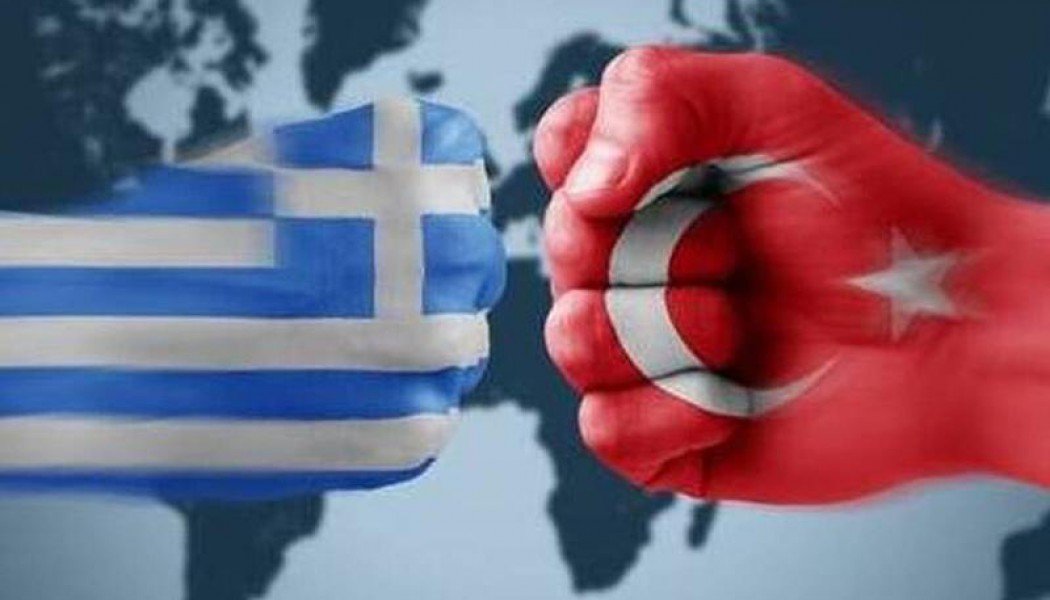It is supposed that summers in the Aegean should be “calm”. This is imposed at least by the “Papoulias-Yilmaz memorandum” of 1988, but also by the practice followed by Greece and Turkey in previous years, with this “tradition” being disrupted from 2020 onwards.
Turkey appears to be instrumentalizing the policy of overflights and violations, in the context of the “graying” of the Aegean islands, according to its policies, as well as the imposition of new acts with the aim of rubber stamping its “Blue Homeland” doctrine.
Overflights and violations that never cease, even during holidays and high tourist traffic times, while they try to send their own “messages” to Greece’s allies, such as the USA. With the violation of Greek airspace a few miles from the Alexandroupolis base in May being characterized as indicative of Ankara’s hardening stance.
The barrage of 39 violations of the national airspace of Greece on the 15th of August, the feast of the Assumption of the Virgin, with three overflights and three mock dogfights, must be seen in this context. With overflights and violations by Turkish aircraft continuing over the following days, as on Wednesday there were a total of 45 violations of Greek airspace, one of which was an overflight.
According to the Greek General Staff, the violations were carried out by 12 F-16 fighters and an unmanned aircraft, which were identified and intercepted.
Turkish F-16s
And all this while Turkey is in the process of discussions with the US regarding its request for new F-16s and upgrade kits for its ageing fighter fleet. And with the Turkish Ministers of Defense and Foreign Affairs, Hulusi Akar and Mevlut Cavusoglu, making it clear that Ankara is not going to accept the conditions that Washington is trying to impose on it in relation to their acquisition as they concern the policy of violations and overflights.
After all, Cavusoglu has pointed out in a recent interview (Turkish TV 100) that even the American government disagrees with Greece’s practice of defining its territorial waters at six miles and its airspace at 10.
Read also: Menendez: Russia’s supply of S-400 to Turkey constitutes a violation of sanctions
Turkey has demonstrated its intention to persist in the rhetoric and policies of tension, in view of the 2023 elections. With the issue of demilitarization of the islands being the main narrative of the Turkish disputes. The goal for Ankara to continue with challenges that remain “under the radar” of the international community and do not cause alarm at a time when NATO unity and the avoidance of tensions between allies are considered prerequisites. In the shadow of the Russian invasion of Ukraine.
Internationalization
It is important for Ankara to portray Athens as the one violating legitimacy in response to the internationalization of the challenges Greece is attempting. For the Greek side, it is important that the issue of Ankara’s provocations towards the Republic of Cyprus be included in the frame of internationalization, especially in view of the second phase of the hydrocarbon exploratory drilling of the “Abdul Hamid Han” floating rig and the strong possibility that it will head towards the Cypriot EEZ.
In this context, the attitude that the US will take towards Turkey is also important, which feels that it is strengthening and reclaiming its role as an international power and not a regional player, while the war in Ukraine is ongoing.
After all, the Turkish president has shown that he seeks to use everything to his advantage in a diplomatic bargain that allows him to either play his cards, or fold according to the profit he expects to gain each time. Various ministers or other officials in his camp are puppets and he is the puppet master, using them to raise the tone with Greece, for example, whenever necessary and guide the opposition accordingly…




